Filter by
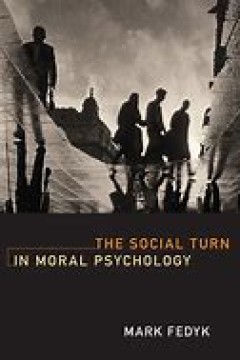
The Social Turn in Moral Psychology
"In this book, Mark Fedyk offers a novel analysis of the relationship between moral psychology and allied fields in the social sciences. Fedyk shows how the social sciences can be integrated with moral philosophy, argues for the benefits of such an integration, and offers a new ethical theory that can be used to bridge research between the two. Fedyk argues that moral psychology should take a s…
- Edition
- -
- ISBN/ISSN
- 9780262337151
- Collation
- 1 online resource (x, 246 pages) :illustrations
- Series Title
- -
- Call Number
- -
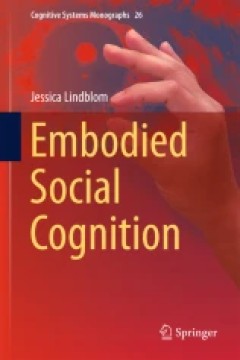
Embodied Social Cognition
This book clarifies the role and relevance of the body in social interaction and cognition from an embodied cognitive science perspective. Theories of embodied cognition have during the last decades offered a radical shift in explanations of the human mind, from traditional computationalism, to emphasizing the way cognition is shaped by the body and its sensorimotor interaction with the surroun…
- Edition
- 1
- ISBN/ISSN
- 978-3-319-20315-7
- Collation
- 4 b/w illustrations, 34 illustrations in colour
- Series Title
- -
- Call Number
- -
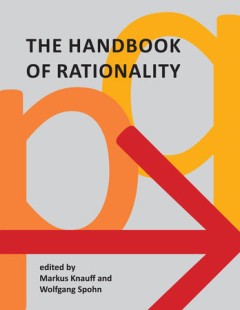
The Handbook of Rationality
The first reference on rationality that integrates accounts from psychology and philosophy, covering descriptive and normative theories from both disciplines. Both analytic philosophy and cognitive psychology have made dramatic advances in understanding rationality, but there has been little interaction between the disciplines. This volume offers the first integrated overview of the state of…
- Edition
- -
- ISBN/ISSN
- 9780262366175
- Collation
- -
- Series Title
- -
- Call Number
- -

From Bricks to Brains the Embodied Cognitive Science of LEGO Robots
From Bricks to Brains introduces embodied cognitive science, and illustrates its foundational ideas through the construction and observation of LEGO Mindstorms robots. Discussing the characteristics that distinguish embodied cognitive science from classical cognitive science, From Bricks to Brains places a renewed emphasis on sensing and acting, the importance of embodiment, the exploration of …
- Edition
- -
- ISBN/ISSN
- 9781897425787.01
- Collation
- -
- Series Title
- -
- Call Number
- 354 pages
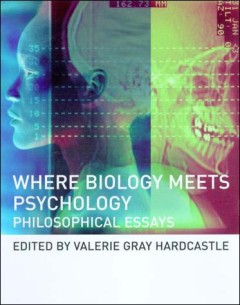
Where Biology Meets Psychology: Philosophical Essays
A great deal of interest and excitement surround the interface between the philosophy of biology and the philosophy of psychology, yet the area is neither well defined nor well represented in mainstream philosophical publications. This book is perhaps the first to open a dialogue between the two disciplines. Its aim is to broaden the traditional subject matter of the philosophy of biology while…
- Edition
- -
- ISBN/ISSN
- 9780262274944
- Collation
- -
- Series Title
- -
- Call Number
- -
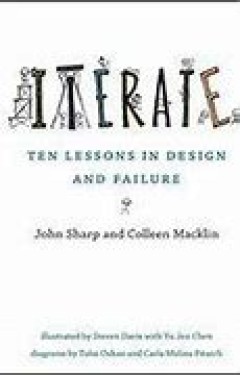
Iterate :ten lessons in design and failure
How to confront, embrace, and learn from the unavoidable failures of creative practice; with case studies that range from winemaking to animation. Failure is an inevitable part of any creative practice. As game designers, John Sharp and Colleen Macklin have grappled with crises of creativity, false starts, and bad outcomes. Their tool for coping with the many varieties of failure: iteration, th…
- Edition
- -
- ISBN/ISSN
- 9780262352123
- Collation
- 1 online resource (312 pages).
- Series Title
- -
- Call Number
- -

Making Games for Impact
"Squire draws on 15+ years of experience to describe how games are developed and deployed in the classroom"--OCLC-licensed vendor bibliographic record.
- Edition
- -
- ISBN/ISSN
- 0262366223
- Collation
- 1 online resource.
- Series Title
- -
- Call Number
- -
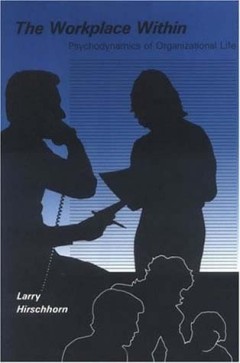
The Workplace Within: Psychodynamics of Organizational Life
In this revealing study, Larry Hirschhorn examines the rituals, or social defenses, organizations develop to cope with change. Using extended ease studies from offices, factories, and social services, he describes why these often irrational practices that fragment and injure individuals within the workplace exist, how they operate, and how they can be reshaped to enhance people's work experience.
- Edition
- -
- ISBN/ISSN
- 9780262275446
- Collation
- -
- Series Title
- -
- Call Number
- -
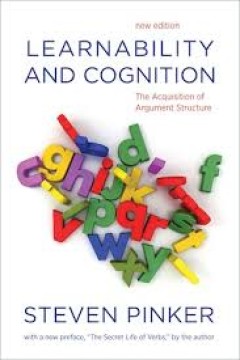
Learnability and cognition : the acquisition of argument structure
Before Steven Pinker wrote bestsellers on language and human nature, he wrote several technical monographs on language acquisition that have become classics in cognitive science. Learnability and Cognition, first published in 1989, brought together two big topics: how do children learn their mother tongue, and how does the mind represent basic categories of meaning such as space, time, causalit…
- Edition
- New ed.
- ISBN/ISSN
- 9780262314275
- Collation
- 1 online resource (xx, 488 pages) :illustrations.
- Series Title
- -
- Call Number
- -

Whistled Languages A Worldwide Inquiry on Human Whistled Speech
The main focus of this monograph on whistled speech is the result of a worldwide inquiry primarily based on the author’s unprecedented fieldwork and laboratory experience. The different questions raised by the origin and the evolution of whistled forms of languages are also explored, including the role of environmental constraints in the emergence of whistled speech, their phonetic and phonol…
- Edition
- -
- ISBN/ISSN
- 978-3-662-45837-2
- Collation
- -
- Series Title
- -
- Call Number
- -
 Computer Science, Information & General Works
Computer Science, Information & General Works  Philosophy & Psychology
Philosophy & Psychology  Religion
Religion  Social Sciences
Social Sciences  Language
Language  Pure Science
Pure Science  Applied Sciences
Applied Sciences  Art & Recreation
Art & Recreation  Literature
Literature  History & Geography
History & Geography